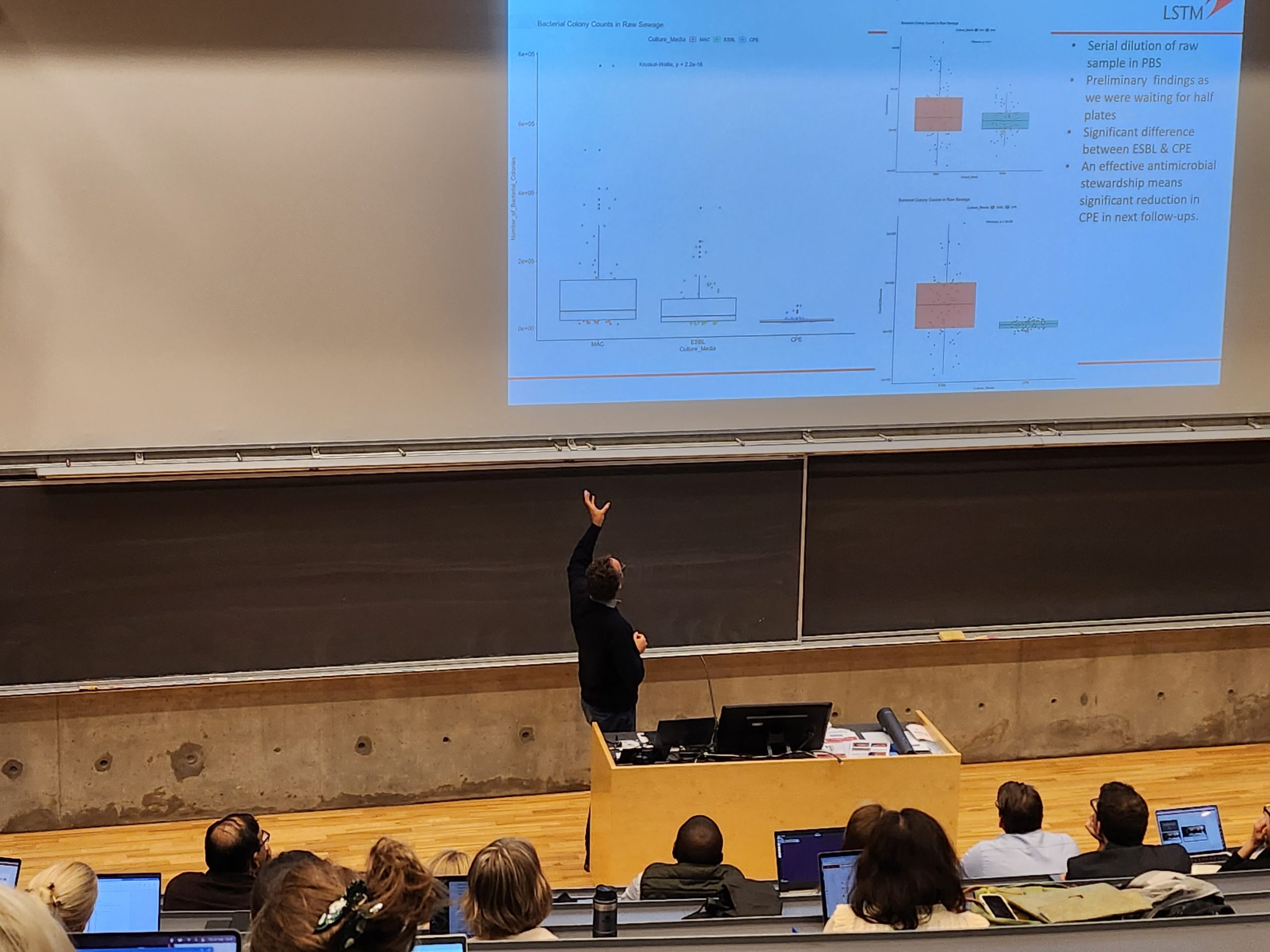As announced on our website earlier, CAMRIA was engaged in organizing an interesting seminar on “Antimicrobial resistance surveillance in environmental and human samples” that took place on September 21st, 2023.
The main organizer of the event – CAMRIA researcher Randi Jacobsen Bertelsen invited a number of experts within different aspects of the antimicrobial resistance research, representing both Norwegian and foreign institutions. Over 50 participants joined the seminar, either physically or online on Zoom to gain new perspectives on surveillance of antimicrobial resistance.
The first speaker, Adam Roberts (Liverpool School of Tropical Medicine, UK) presented activities of the STRESST Project, focusing on “Antimicrobial Stewardship in Hospitals, Resistance Selection and Transfer in a One Health Context”. The One Health approach was also an important aspect of the talk by another CAMRIA researcher – Iren Høyland Löhr (Stavanger University Hospital, Norway) who discussed “Klebsiella pneumoniae in a One Health perspective in Norway”. The first part of the seminar was concluded by Katariina Pärnänen (University of Turku, Finland) with a very interesting presentation on “Population-level variation in the human gut antibiotic resistome”.
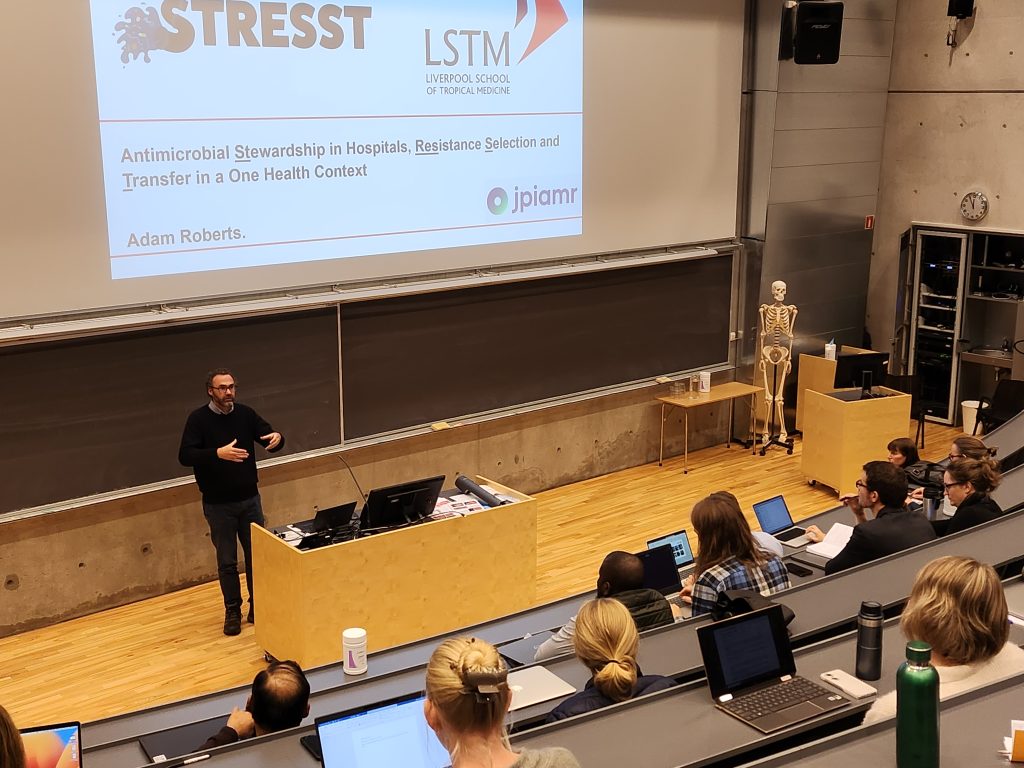
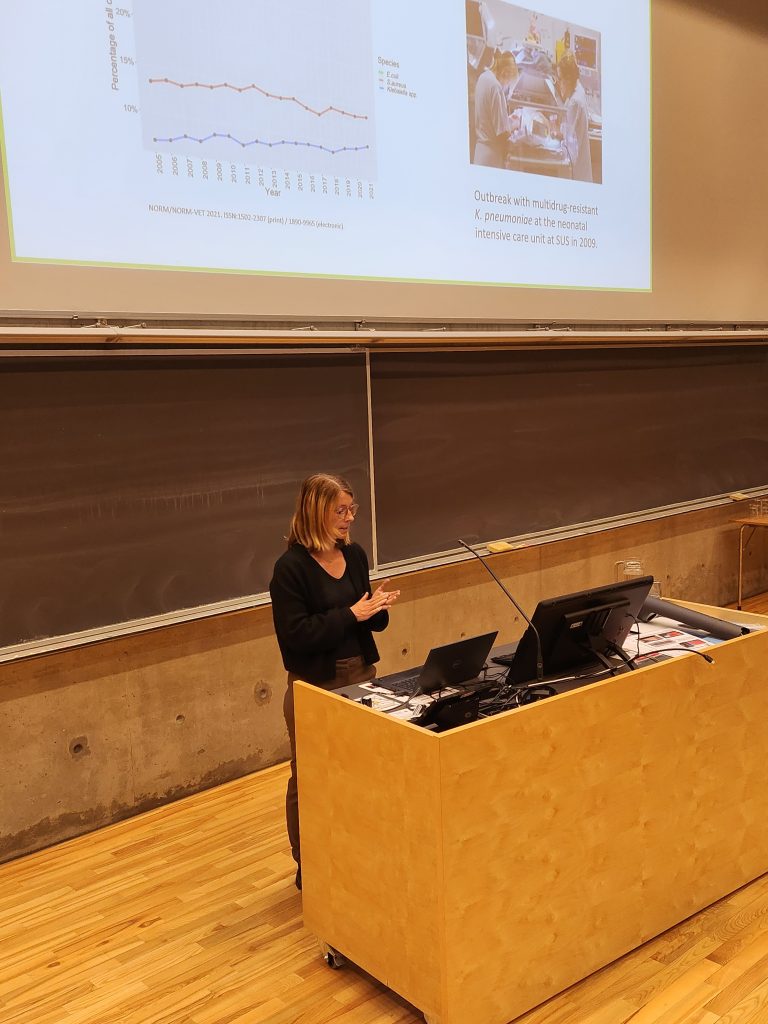
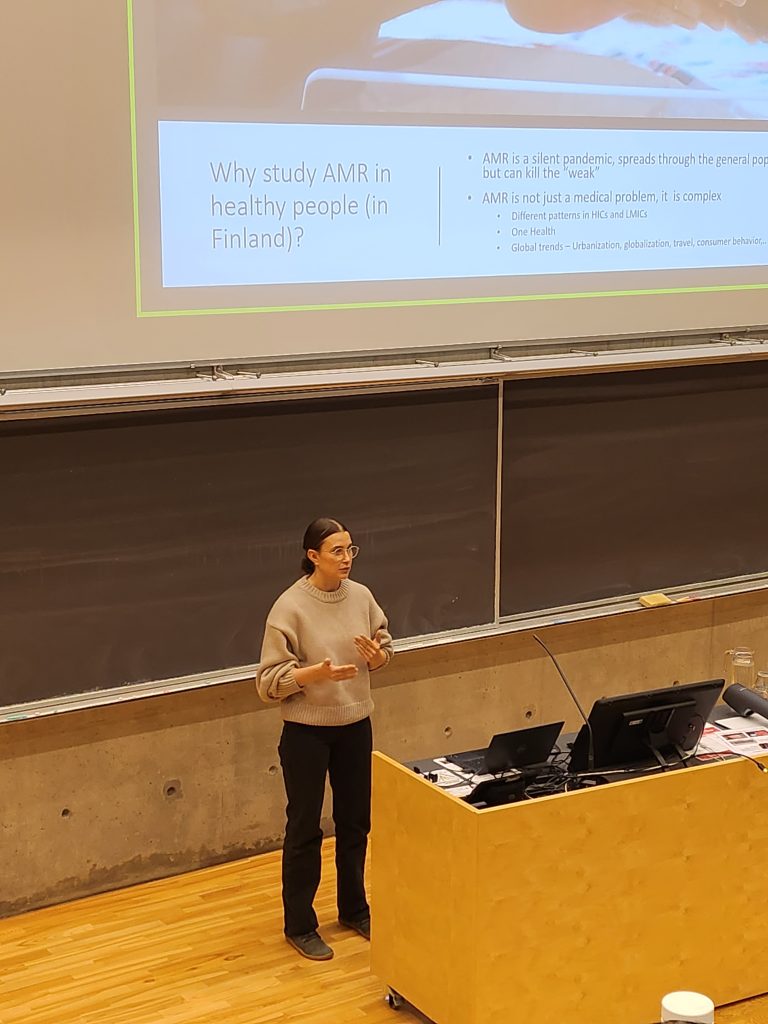
After a short break, we gathered again to listen to Aldert Zomer (Utrecht University, the Netherlands). In his talk he provided relevant insights on “Residues, recirculation, re-exposure and resistance. Why we need to consider the stability of antimicrobials in the farm environment”. The next speaker – Patrick Munk (Denmark Technical University, Denmark) shared his knowledge on “Monitoring of global AMR patterns using sewage and public data”. The final talk of the day by Nachiket Marathe (Institute of Marine Research, Bergen, Norway) was a great conclusion of the productive seminar, providing a Norwegian perspective on “AMR in the environment and the need for surveillance”.
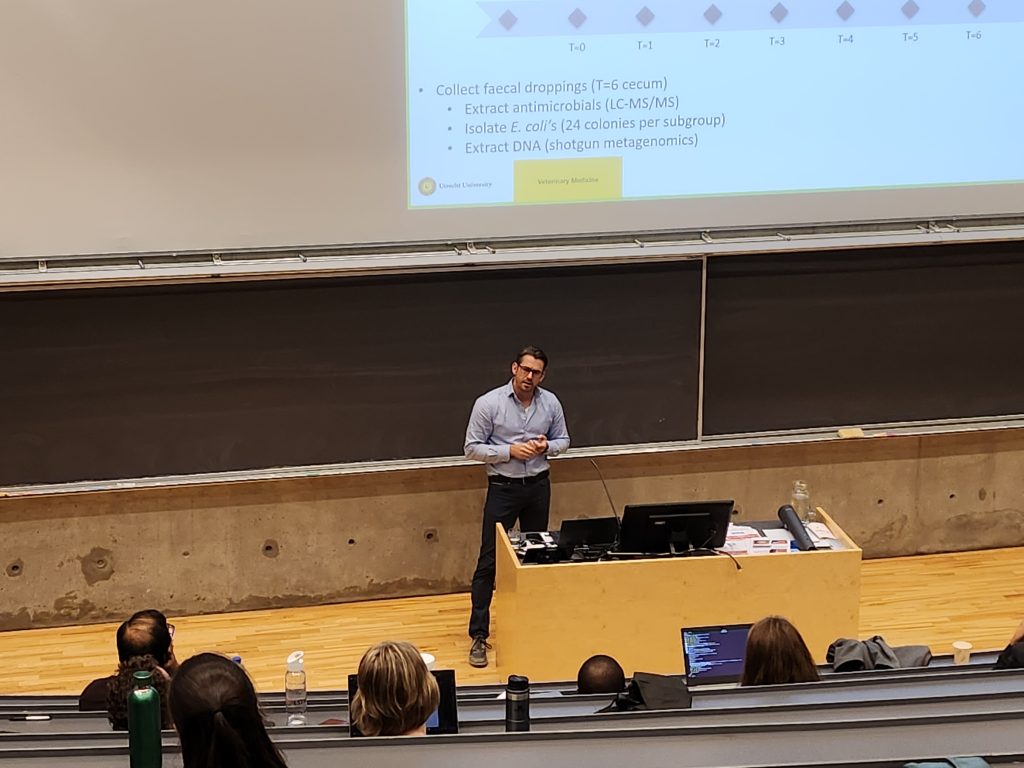
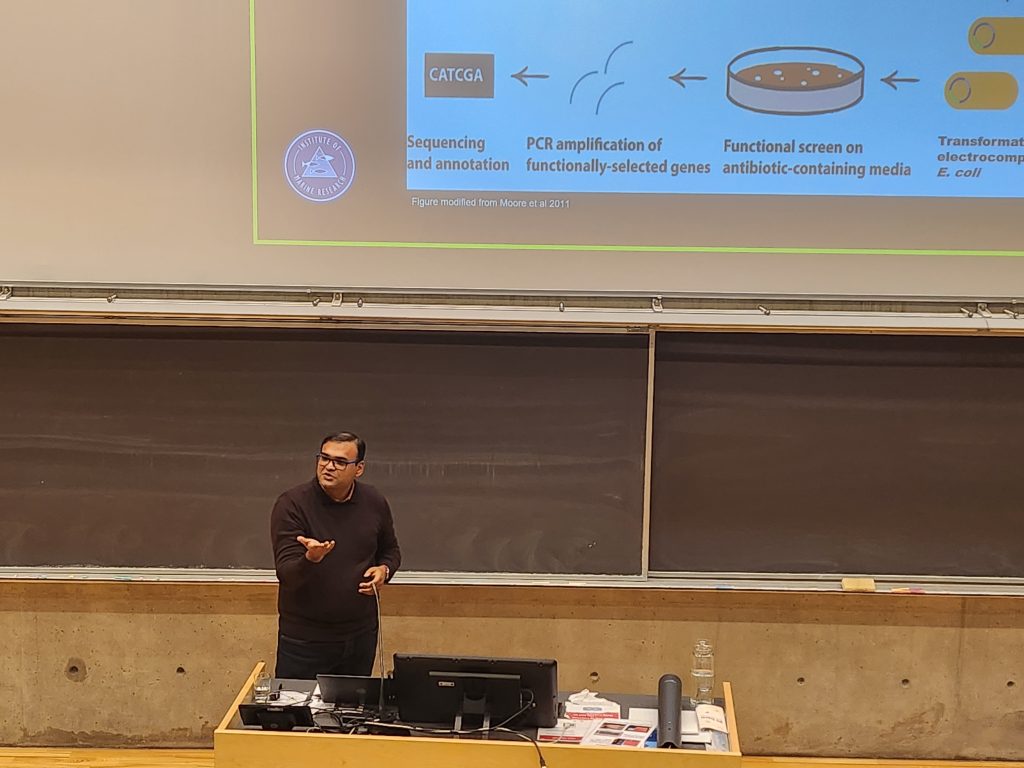
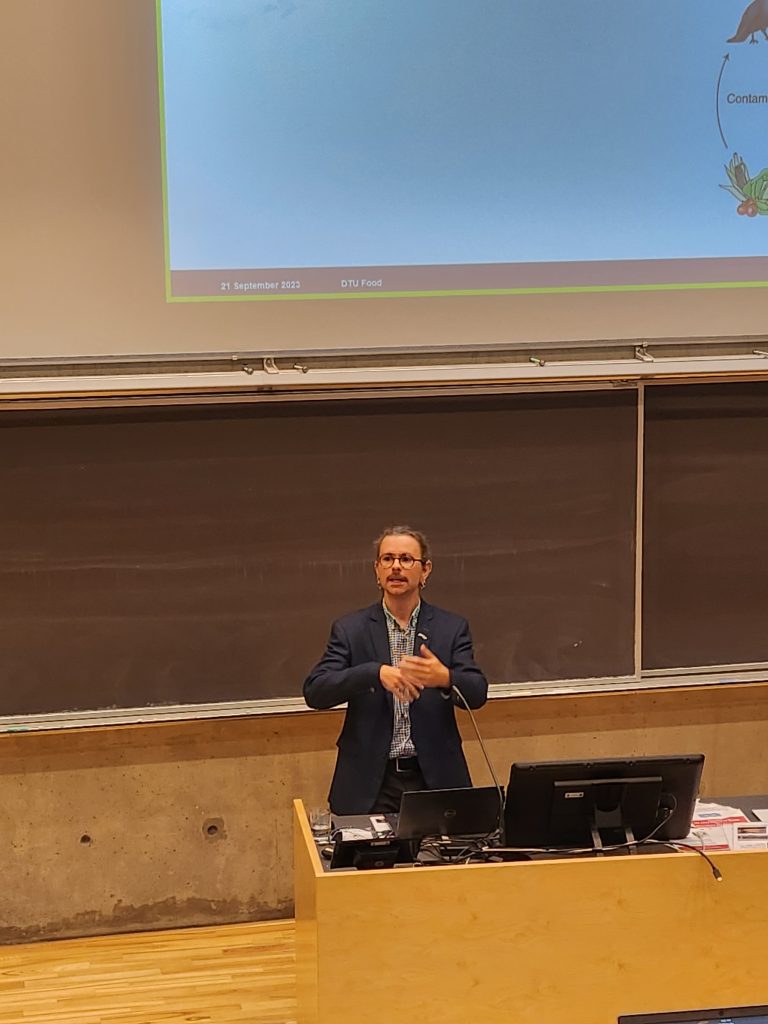
The event turned out to be very successful and engaging, both for the speakers and the audience that actively participated in all discussions. We hope it gave the participants food for thought and will inspire similar seminars in the future.

